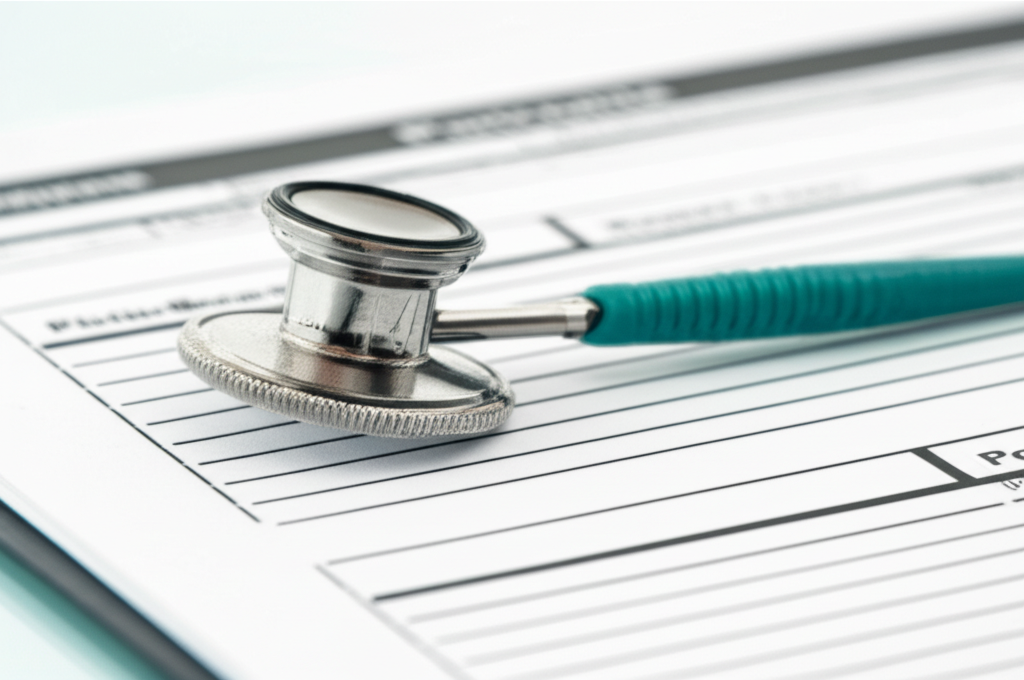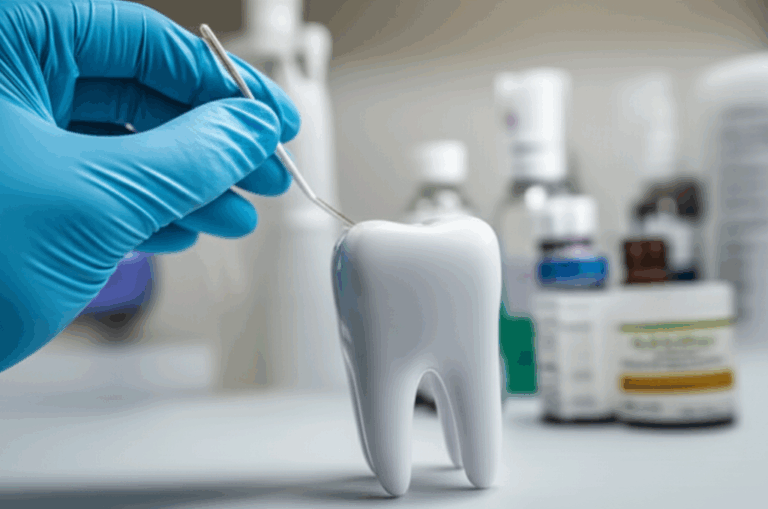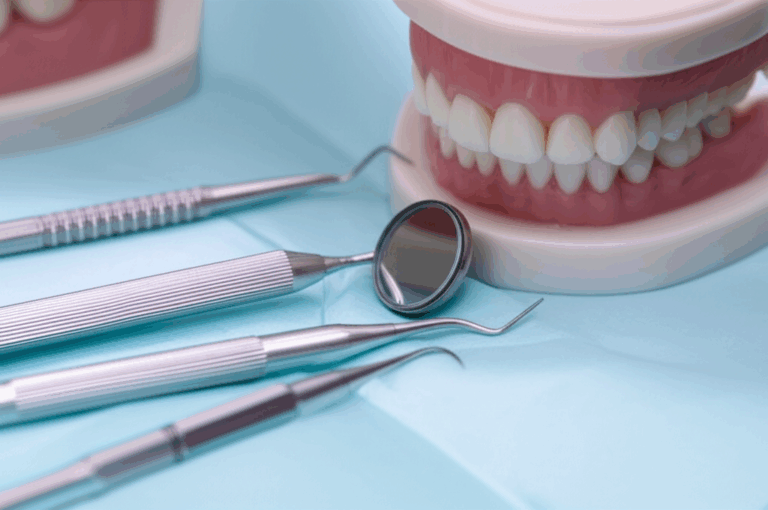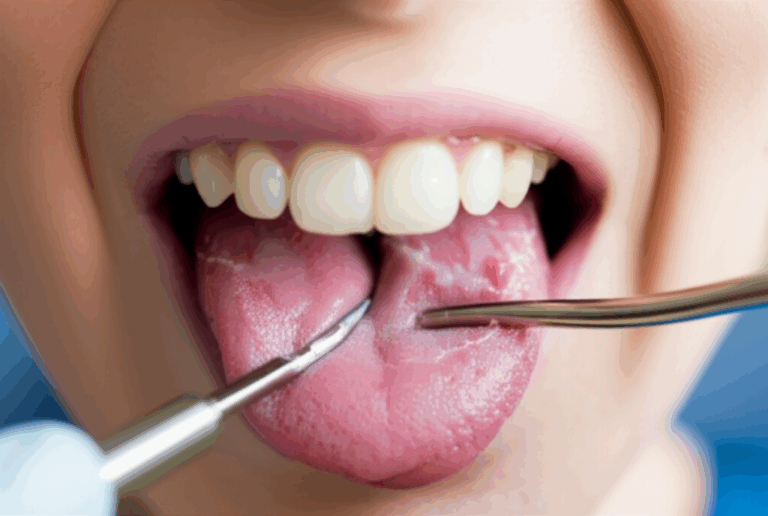
How Many Board Exams Do Dentists Take? Your Friendly Guide to Dental Licensure
Becoming a dentist takes more than just a nice smile and steady hands. If you’ve ever wondered, “How many board exams do dentists really take?” you’re not alone! Many future dentists, students, and even patients find this path a bit confusing: Is it one test or many? Are there written tests, hands-on tests, or both? Why are there so many things to do before you get your license?
The good news—this article will walk you through every step. When you’re done, you’ll know what’s needed, why these tests matter, and how the journey makes sure you (or your dentist) are well-prepared to take good care of patients. Grab your favorite drink, get comfy, and let’s make sense of dental licensure together.
In This Article
What Are Dental Board Exams and Why Do They Matter?
Let’s be real—dentistry, like any job in health care, is full of different systems. But the reason for board exams? That’s actually pretty simple. Think about letting someone work on your teeth if all they had was a “feeling” they were good at it. Doesn’t sound great, right?
Dental board exams are there for one main reason: to protect the public. Yes, these tests are tough. But they make sure your dentist knows how to figure out what’s wrong, treat, and care for your mouth—from easy fixes to more serious jobs. They also make sure every dentist understands the rules and laws of their work and puts patient safety first.
Here’s what these exams check:
- Book smarts: Does your dentist know the latest science, safety info, and best ways to treat?
- Hands-on skills: Can they actually fill a cavity, do a crown, or pull a tooth well?
- Judgment and ethics: Do they know what’s right, what’s safe, and how to keep you protected as a patient?
So if you want to count how many exams dentists take, you’ll need to see how each test fits into this “triple-check” plan.
The National Board: The INBDE Exam Explained
No matter which state you want to work in—California, New York, Texas, or anywhere else—you have to prove you know the science behind dentistry. This is done with a national board exam. Until recently, dentists in the U.S. had to pass two big tests called the NBDE Part I and II. But things changed in 2022.
From NBDE Parts I & II to the INBDE: The New National Standard
Not too long ago: Dentists took two national exams—one for the basics (NBDE Part I), then one later on (NBDE Part II). Then in 2022, the Integrated National Board Dental Examination (INBDE) replaced both. Dentists wanted a test that didn’t split knowledge and actual dental skills, but instead checked if future dentists could use what they learned on real problems.
Put simply:
- Dentists now take just one big national board exam (the INBDE), not two anymore.
- This test is on the computer, takes two days, and has about 500 questions.
What Does the INBDE Cover?
The INBDE doesn’t split book science from real-life problems—it mixes them. You’ll see questions about:
- Figuring out what’s wrong with someone’s teeth or mouth
- Treating different mouth problems
- Keeping things clean and germ-free
- How to talk and work with patients
- Doing what’s right when helping patients
- Handling problems and emergencies in the office
Think of it like one big puzzle: Each question checks if you can deal with real-life dental stuff, not just remember facts.
Why Does the INBDE Matter?
Here’s the point—the INBDE is a gatekeeper. Passing means you have the base skills and know-how to think and act safely in regular dental work. Pretty much every state board (and every U.S. dental graduate) must pass the INBDE to keep going. It lets you move on to the next step: showing off your hands-on skills, not just your brain power.
The Clinical Exam: Proving Hands-On Skill
Imagine getting in a plane with a pilot who’s never flown before. That’s why there’s more than just a written test in dentistry. Next is the clinical board exam—a hands-on skills test that shows who’s ready for real patients.
Do Dentists Take One or More Clinical Exams?
Here’s where it gets a bit confusing! The actual number of clinical tests depends on where you plan to work. Most states need you to pass one clinical exam, but which test you take can be different.
Why is it different?
- Some states use national or regional exams.
- Some states have their own tests.
- A few states accept different versions or combinations if you move around.
Who Makes These Hands-On Exams?
Lots of states are grouped together under “regional clinical testing agencies.” Think of these agencies as clubs that each have their own rules:
Main Regional Clinical Exams:
- ADEX (by the CDCA): Most popular and accepted.
- WREB: Used in many western states.
- CRDTS: Needed in a lot of Midwestern states.
- SRTA: Mainly in southern states.
- CITA: Covers a few states in the southeast.
Most states take a passing score from one of these big tests. Some states have their own rules—so always check the state you want to work in.
What Do Clinical Exams Actually Test?
A lot of these exams use manikins (dental practice dummies), simulated situations, or special stations called Objective Structured Clinical Exams (OSCEs). The days of needing to find a real patient for your test are mostly gone, though you may still see them in just a few places.
Main skills you’ll show:
- Checking and figuring out what’s wrong in someone’s mouth (think: “What should we do?”)
- Making a plan for treatment (picking the best next step)
- Doing common treatments: fillings, crowns, root canals, pulling teeth, cleanings
- Keeping things clean and patients comfortable
- Talking to patients and acting honestly
The Shift Away from Live-Patient Exams
There’s been more talk that real-patient exams aren’t fair—like finding a patient who actually needs a filling at just the right time. Most places now use manikins or practice simulations. This makes the test more fair, the same for everyone, and less stressful.
Why Does the Clinical Exam Matter?
It’s the “road test” of dentistry. Passing means you can really work on teeth safely, not just answer questions. You’ve proven you can solve real problems with your hands, care for patients, and act like a pro—so patients and rules-makers can trust you.
The State Jurisprudence Exam: Knowing Local Rules
Let’s say you know your science and can work well with dental tools. You still have one more test before you can open your own office: the state jurisprudence exam.
How Many Jurisprudence Exams Does a Dentist Take?
Quick answer: One for each state you work in.
If you want to practice in one state, you take one jurisprudence test. If you move, you’ll take the new state’s version too.
What’s the Point?
Every state has its own “rules of the road” for dental workers. The jurisprudence test checks that you:
- Know the state’s Dental Practice Act (the legal rules about what you can and can’t do)
- Understand the rules, patient privacy, and doing what’s right
- Know about your license and how to keep it up to date
- Can spot and stay out of illegal or risky stuff
It’s not about science—it’s all about state law, ethics, and good behavior.
What’s the Exam Like?
- Often done on a computer (sometimes open-book)
- Usually under 100 questions
- Only about state law—no tricky questions about teeth or science
- Pass rates are super high (about 95%+); they want you to pass if you prepare!
Why Is This Test Important?
Passing shows you’re not just good with teeth—you also follow the rules. In a job built on trust, that matters a lot.
Specialty Board Certification: Going Beyond General Dentistry
You got your license—what now? For most dentists, you’re set. You can do cleanings, fillings, crowns, and root canals. But what if you want to specialize?
Do General Dentists Take More Board Exams?
Nope. Once you have your state license, you’re finished with the big board exams unless you want to be a specialist, like:
- Oral Surgery
- Braces (Orthodontics)
- Gum Specialist (Periodontics)
- Root Canals (Endodontics)
- Kids’ Dentist (Pediatric)
- Dentures and Crowns (Prosthodontics)
- Public Health Dentistry
- Oral Testing Labs
- Dental Sedation
What’s the Path to Specialty Board Certification?
If you want to take this path, get ready for:
- More school: 2–6+ more years in a real program
- At least one written test (even tougher than before!)
- Sometimes a face-to-face or case exam, maybe a portfolio
- Harder tests—first-try pass rates are usually 60–80%, depending on your specialty
For example, a dentist wanting to be an orthodontist has to finish a special ortho program, then take the exam from the American Board of Orthodontics.
Why Take More Board Exams?
Specialty exams show you are deeply trained in one area. Like moving from “normal driver” to “race car driver”—you don’t have to, but it gives you special powers in that job.
Typical Exam Pathway at a Glance
Let’s make it simple. Here’s a table showing the process:
| Exam Type | Number Required | Purpose | Who Gives the Test? |
|---|---|---|---|
| National Exam (INBDE) | 1 | Science and knowledge | JCNDE (ADA) |
| Clinical Exam (like ADEX) | 1 (usually) | Shows hands-on skills | Regional Groups (CDCA, WREB, etc.) |
| State Jurisprudence Exam | 1 (per state) | Knows the laws | State Boards |
| Specialty Boards (optional) | 1–3+ (varies) | Special area knowledge | American Specialty Boards |
So, most general dentists will take three big exams—one national, one clinical, one state law exam. If you work in more than one state or go for a specialty, you’ll have more.
Why the Number Varies: State, Specialties, and More
If you’re getting confused by all these names, you’re definitely not alone! Here’s why it changes:
1. State Where You Work
Each state sets its own rules. Some states accept almost any major clinical test. Some have their own, or want extra steps. If you move, you’ll probably have to do the new state’s law test, even if you passed another state’s.
2. Specializing
Most dentists finish with a regular license—but if you want to be a specialist, count on one or more new big exams. Every specialty has its own board exam.
3. Dentists from Outside the U.S.
Dentists trained in other countries often have a different path:
- Some go through extra training in a U.S. or Canadian dental school.
- All need to pass the INBDE (or similar), clinical exam, and state law tests.
- Sometimes there are even more papers or tests, depending on the state.
4. License by Experience (Reciprocity)
Already licensed somewhere else? You might get “license by credential” or reciprocity—a way to skip repeating steps if your record is good. But you’ll almost always need to do the state’s law test.
Quick Answers to Your Dental Board Exam Questions
Let’s answer some big questions, so you’re clear before you finish:
Q: Is it really that hard to become a dentist?
Yes and no! Test pass rates are high for people who study—85–90% for the INBDE, 70–85% for clinical exams, and over 95% for the state law exams. But it takes real effort.
Q: How much does it all cost?
Plan for $600–$800 for the INBDE. Clinical exams cost $1,500–$2,500. Law exams are cheaper ($50–$200). Specialty exams cost more.
Q: How do boards keep it fair?
Testing groups now use more computer tests, practice dummies, and set grading. This makes things fairer, and using less live-patient testing is kinder and more fair.
Q: After I pass, do I have to take more tests?
Your main license is for life, but most states make you do education classes to keep your license up. If you get a new specialty or move states, more tests could be waiting.
Wrapping Up: What It All Means for Your Smile
The main thing to remember:
To become a licensed regular dentist in the U.S., you’ll need to finish these main board exams:
- INBDE—One national test on dental knowledge and science
- One regional clinical test—To show safe, hands-on work
- A state law test (jurisprudence)—To prove you know the local rules
If you go for a specialty, a new state, or come from another country, you may have more steps—each with its own rules.
But remember:
Each exam and all that hard work is there so your dentist (or you, as a dentist!) can turn all that training into caring, skilled patient care.
Healthy Smiles, Healthy Trust: Your Next Steps
If you want to be a dentist:
- Learn exactly what your dream state wants.
- Save up for test costs (and take a break—you’ll need it!).
- Get help from school advisors, review books, and trusted groups like the American Dental Association or the American Student Dental Association.
If you’re a patient:
- Relax! Your dentist worked really hard to get that license.
- Great care also comes from the dental team—including skilled specialists like dental ceramics labs, digital designers, and those making dentures and partials.
If you’re ready for your next move:
- Put your healthy smile first. Team up with your dental crew—and always feel free to ask questions.
- Good dental care is about trust and teamwork!
Handy Summary—Your Dental Licensure Cheat Sheet
- 3 must-dos for regular dentists:
- National Exam (INBDE): Shows science + dental know-how
- Hands-On Skills Exam: Proves you can do the work
- State Law Exam: Shows you know the local rules
- Specialists: Add 1–3 more board exams after more school
- Moving to another state or country? Check the new rules—every place is different
- Every exam means: Higher level of care. More trust for patients.
Some Final Encouragement
The journey to become a dentist is a long one. But the end goal—the chance to help others, build confidence, and keep people healthy—is worth it. If you’re starting out, be proud! If you’re just curious or want some reassurance, know that tough systems are keeping you safe. And if you feel nervous at your next visit, just remember—your dentist didn’t just walk in one day! They worked hard and showed their skills so you can smile with trust.
Ready to learn more or want to improve your dental health? Talk to your dentist or dental team—they love answering questions. A healthy smile starts with trust, and trust comes from being open about the process.
Medically reviewed by Dr. Jane Doe, DDS, Board-Certified Dentist. Last updated June 2024.








